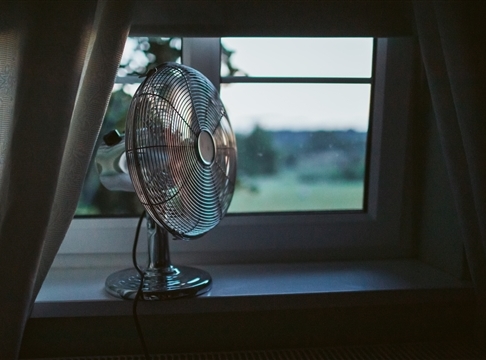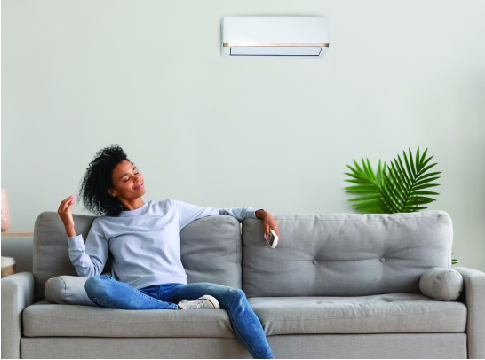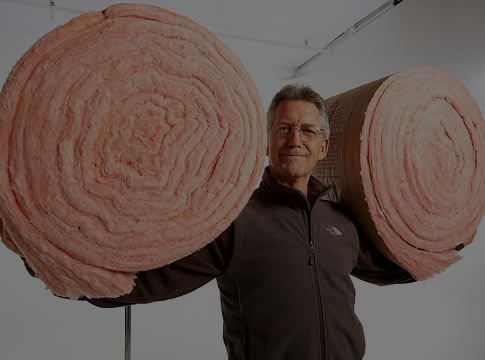Related Programs
High-efficiency heat pumps are ideal for our mild Pacific Northwest climate.
An energy efficient ductless heat pump is cheaper to install and operate than any other heating system.
Important Notice
After Hours Scheduled System Maintenance - We will be performing after hours system maintenance on Saturday, February 7 from 11:00 p.m. until Sunday, February 8 at 8 a.m. During this time our online customer portal and payment services, including pay-by-phone and Walmart Pay, will be unavailable.
We appreciate your patience and apologize for any inconvenience this may cause.
Electric Outage: 1-844-484-2300
Water Emergency: 541-685-7595
EWEB Main: 541-685-7000
EWEB and Lane Electric Cooperative have reached an important milestone in transitioning electric service from EWEB to Lane Electric in the McKenzie Valley. The two utilities have officially signed agreements for EWEB to sell its electric service territory in the McKenzie Valley to Lane Electric.
Find Out MoreAt the January public meeting, EWEB adopted a new set of organizational goals for 2026, providing direction for our work priorities in the year ahead.
Find Out MoreFrosty conditions in Eugene this week have driven electricity demand to the highest levels so far this winter as heaters strain to keep homes and businesses warm.
Find Out MorePilot project gives EWEB the option to run UO’s on-site natural gas generator this winter, gathering valuable insight into the generator’s efficiency and reliability.
Find Out MoreSustainability Snapshops highlight impactful projects completed by EWEB's Customer Solutions department, as a way to celebrate the meaningful work happening behind the scenes.
Find Out MoreTaken together, the 2026 budget and rate adjustments and the territory-realignment evaluation reflect EWEB’s dedication to responsible financial stewardship, modern, resilient utility infrastructure, and thoughtful planning for the future.
Find Out MoreThe new contract with EWEB’s largest energy supplier, the Bonneville Power Administration, forms the foundation of a diverse energy portfolio.
Find Out MoreOut of 290 teams from 14 different countries, EWEB's Lineman Rodeo team places in the top third of competitors.
Find Out MoreWe're heading into the holidays, but that also means snow, ice, and not-so-nice weather might be in the forecast. Here are some tips to prepare in advance.
Find Out MoreBPA’s finalized rate increase is smaller than projected, and EWEB’s pass-through adjustment effective October 1, 2025 will now be 2.7% for residential customers—down from the anticipated 4%.
Find Out MoreWhen you think about getting ready for an emergency, you probably have questions. You aren't alone. Preparing for emergencies can be overwhelming, which is why EWEB has put together a 12-month program to help you and your family get two weeks ready.
Find Out MoreThe earthquake lasted less than a minute. But now the power’s out. The tap runs dry. Cell service is spotty. Would you be ready?
Find Out MoreEWEB adds downed trees and 2,000 tons of gravel to the Uupper McKenzie River below Tamolitch Falls to improve spawning habitat.
Find Out MoreThe U.S. District Court in Eugene has granted EWEB's motion to dismiss a lawsuit brought under the Endangered Species Act pertaining to fish passage at EWEB’s Trail Bridge Dam. The favorable ruling clears the way for EWEB to continue advancing towards implementation of permanent fish passage at the dam.
Find Out MoreAfter eight months of extensive collaboration and analysis with scientific experts at two federal regulatory agencies, EWEB is proposing an improved plan to build permanent fish passage facilities at Trail Bridge Dam on the McKenzie River.
Find Out MoreMay 29, 2024 • Ashley Cissna, EWEB Communications

While the past few weeks have seen relatively moderate temperatures, we all know that here in the Pacific Northwest the weather can turn at any minute. As we enter June, we acknowledge the summer days are just ahead, which ultimately will mean high temperatures and little relief. These hot summer days can force even the most frugal among us to click on the air conditioning. However, running the A/C can cause a blow to the household budget and increase carbon emissions.
Here in Eugene, a typical room air conditioner running 24/7 will add about $26 a week to your electric bill. If you have a Ductless Heat Pump (DHP), cooling your house around the clock will cost around $12 a week.
In addition to the budget impact, cooling your home can warm the planet.
According to the U.S. Department of Energy, air conditioners add roughly 117 million metric tons of carbon dioxide into the air each year—the equivalent of 30 coal-fired power plants.
Turning to the A/C is just one way to keep your home cool this summer. Fortunately we have many alternatives that can keep us cool with less energy use.
Some of the tips below are free and can be used daily to increase your savings; others are simple and inexpensive actions you can take to ensure maximum savings through the warm months.
Keep windows and doors closed during the hot part of the day, but after sunset, when the outside temperature dips, open your windows and leave them open throughout the night. Opening multiple windows creates a crossflow that increases ventilation and provides a cooling draft. By morning, your house will be nice and cool. Just be sure to close all the windows before it starts to heat up outside.
Use curtains or shades to keep sunlight from warming your home. If you still want a little sunlight, open the curtains on windows that don't face the sun directly. Bonus tip: Shading OUTSIDE the window is most effective because it stops the sun's heat before it can enter through the window.
Fans use less energy than AC units and can extend the comfortable temperature range of your home. Placing a fan in an open window at night can help draw cool air into the room. Remember to turn off the fan when you're not in the room to help save energy.
Appliances can produce unnecessary heat. In the kitchen, using slow cookers, pressure cookers, or microwaves will keep your home cooler than using the stove or oven. Wait until you have a full load to run your clothes washer and dishwasher, and run them in the evening when it's cooler. Using energy during "off peak" hours can also help reduce carbon emissions.
Properly insulating your attic, walls, floor, and ducts will keep cool air inside and hot air outside. If you decide investing in air conditioning is necessary, consider a Ductless Heat Pump. Ductless systems provide significant bill savings, improve air quality, and offer year-round comfort with a built-in air conditioner.
This summer, moderate-income customers can qualify to double their energy efficiency rebate on ductless heat pumps, ducted heat pumps, and insulation. We are also offering zero-percent interest loans to help cover the remaining cost of the project. Learn more here, or contact EWEB's energy experts to see if you qualify.
Find more energy saving tips and information about rebates and loans to make energy efficiency upgrades in your home or rental property.
High-efficiency heat pumps are ideal for our mild Pacific Northwest climate.
An energy efficient ductless heat pump is cheaper to install and operate than any other heating system.
Para asistencia en español llame al 541-685-7000, presione 9
Mailing Address: 4200 Roosevelt Blvd., Eugene, OR 97402
Phone: 541-685-7000
Toll free: 800-841-5871
Email: eweb.answers@eweb.org
Customer service phone hours: 8:30 a.m. to 5 p.m. Monday - Friday



